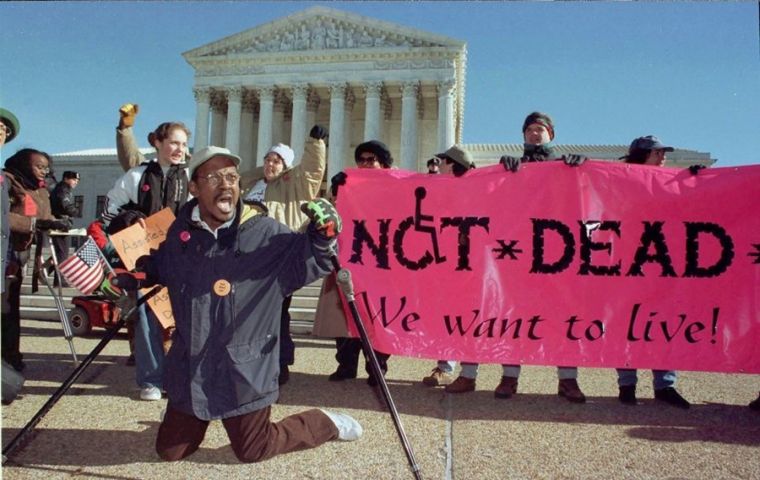Assisted suicide proponent withdraws bill before Minnesota Senate committee's vote

A bill that seeks to legalise assisted suicide in Minnesota was withdrawn by its author before a committee voted for it on Wednesday.
S.F. 1880, or the Minnesota Compassionate Care Act, appeared to be dead after lead author Senator Chris Eaton withdrew the bill, which would likely have been killed if the committee voted on it.
Under the bill, a terminally ill person may request for aid in dying where a physician will prescribe medication, which the patient will self-administer.
A public hearing on the bill drew physicians, nurses, attorneys, and people with disability who warned of the dangers of the bill to the vulnerable section of society, according to National Right to Life.
More than 100 people who are against the measure attended the hearing, wearing "No assisted suicide" stickers.
The Minnesotans Against Assisted Suicide (MNAAS) submitted written testimony to the Minnesota Senate Health, Human Services and Housing committee.
"We have an obligation to the terminally ill and their loved ones. But this bill will not help that cause," said Dr. Thomas Nobrega, a St. Paul cardiologist. "This bill is about giving a patient the means to die by a drug overdose. It creates an irreconcilable conflict between the doctor as a compassionate guide and healer, and the motivation to expedite death."
Dr. James Joyce said he has seen the "ravages" of suicide and added that legal assisted suicide would severely destroy the doctor-patient relationship,
"If they can't trust us, we can't help them," he said.
Nurse Kathy Ware is a mother of a disabled son, Kylen, and spoke about the need to protect persons with disabilities.
"People wouldn't pursue assisted suicide if they had the help and care they needed for their loved one. We in the disability community are not asking for pity. We want help and we want to be treated with value," she said.
Elizabeth Bakewicz, who has terminal cancer and brain disease, asked the committee not to pass the bill.
"Under this bill I am treated as nothing but a list of burdens. But I am a human being," she said.
Neil Helgeson, board president of The Arc Minnesota, a disability rights organisation, has a son with disability. He said those who deal with disabilities generally enjoy life.
"This places their lives at extraordinary risk. "Senate File 1880 poses a grave threat to individuals with disabilities," he said.











